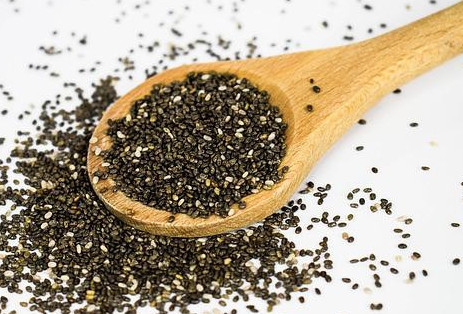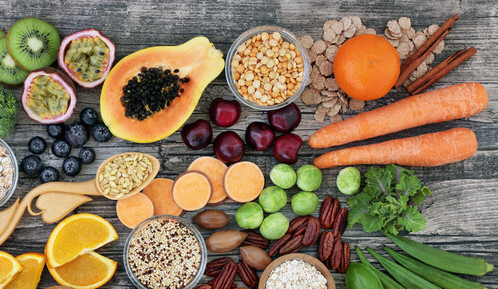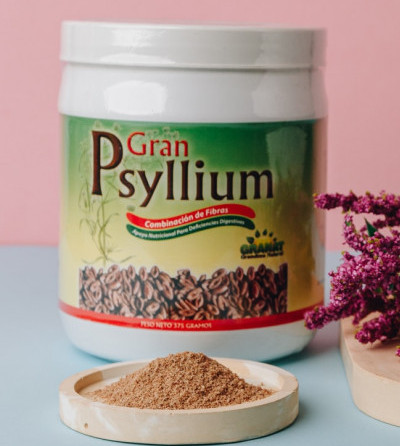
What is Fiber? And why does it matter?
Fiber is a type of Carbohydrate that is vital for digestive health. Our gut can’t digest fiber, but it still plays an important role in a nutritious diet. Therefore, it goes through the digestive system quickly, preventing tummy trouble and increasing regular bathroom habits. This results in overall health benefits that prevent heart and diabetes. Fiber also lowers cholesterol and helps shed some unwanted weight, stopping today’s Obesity epidemic.
Many studies have shown a reduction in obesity, diabetes, and heart disease as one increases fiber intake. In addition, a 2019 study has shown a correlation between increased intake of up to 8 gms per day of dietary fiber and a 5- 27% reduction in Coronary heart disease, type 2 diabetes, and colorectal cancer.
Here are the top 10 high-fiber foods for gut and overall health that we need to consume and start to enjoy.

- Blackberries –
- Beans
- Oats
- Avacado
- Pistachio
- Lentils
- Collards greens
- Brussels Sprouts
- Almonds
- Raspberries
What are the different types of fiber?
There are two types of fibers: soluble and insoluble fiber. You can get fiber from fruits, vegetables, and grains.
- Soluble fiber: Absorbs the water in the food, turning it into a gel-like substance that slows down digestion and softens the stool. This aids in lowering cholesterol and blood sugar regulation.
- Insoluble fiber: It doesn‘t dissolve in water, making stool bulky. It moves to the digestive system quickly, helping stool pass easily and preventing constipation.
How much fiber do you need?
The American Heart Association recommends 25-30g from food, not supplements. Women under 50 years old can take 21-25g per day, while men under the age of 50 years need 30-38g of fiber. Lactating and pregnant women 28g per day. One might ask how much fiber needs to be taken per day. Here is a breakdown of what food you can eat to give you enough fiber, up to 25g. You can see more foods per American fiber dietary guideline
- 100gms of uncooked whole grains
- One cup of cooked beans
- 2-3 servings of fruits
- 200gms of broccoli
- 1/2 cup leafy greens
- 1 teaspoon of flaxseeds
- A cup of mixed fruits
You can find more fiber food options here per the American dietary guidelines.
Should I take a fiber supplement? 
You can get fiber from fruits and vegetables, but getting the right amount of fiber from food alone can be challenging. The alternative might be a fiber supplement if you know you’re not taking the recommended amount.
The amount of fiber you consume is crucial. Taking it in small amounts can help prevent side effects such as bloating, gas, and cramping. Begin slowly and increase the intake gradually, daily or weekly, as your body tolerates. Distributing your fiber intake throughout the day is also advisable to maintain digestive balance. Additionally, drinking plenty of water with each fiber supplement can aid digestion and ensure hydration.
If you have any digestive disorders or diabetes, be sure to consult your doctor, as you may require a specific dietary plan supplement that’s gluten or sugar-free.
What are the benefits of the recommended amount of fiber intake?
- Lowers cholesterol and blood pressure, reducing the risk of heart disease and stroke.
- Fiber can make you feel full, which can increase weight management and, hence, the ability to shed a few pounds.
- Enhances insulin sensitivity and blood sugar control, lowering the risk of diabetes.
- Ease passing of bowel movements, preventing constipation, and decreasing digestive diseases.
- Assists in the increase of good gut bacteria.
- Reduction of cancer risk especially colorectal cancer
- Make bones stronger because of certain prebiotics found in foods like leeks, oats, and asparagus that increase the bioavailability of minerals like calcium easily, thus maintaining bone density
What are the symptoms of too much fiber?
Fiber can cause more harm than good if consumed more than 45 grams daily. Starting low is the name of the game. This will prevent feeling uncomfortable in your gut. Here are some problems you might incur if you start flooding large amounts of food with a high fiber intake.
- Gas, bloating, constipation, diarrhea
- Reduced appetite leads to weight loss quickly.
- Prevent mineral absorption such as calcium, magnesium, zinc, and iron, which cause deficiency and hence more health issues.
- It can cause intestinal obstruction, especially when not drinking enough fluids after consuming fiber.
What happens if you get too little fiber?

As you might already know, too much and too little fiber cause digestive problems. The main culprit of too little fiber is constipation. It is a major digestive issue in modern society, as we eat refined and sugary foods with very little fiber, if any.
Ideally, half of our plate should be plant foods, but most of us have more animal protein than plant protein. Plants provide more fiber, giving our gut minerals and vitamins to function optimally. These increase our chances of living longer, healthier, and happier lives.
Does fiber make you poop hard or soft stools?
Fiber makes the stool more solid due to nature’s capability to absorb water.
As a result, it makes the poop bulkier and softer so it can pass with ease. A stool can become harder when the fiber is consumed and not drinking enough fluids.
What are the consequences of low fiber intake?
- Constipation, bloating
- feeling hungry after meals
- Alteration in blood sugars
- Low energy/fatigue
- Increase in cholesterol
- Colorectal cancer
How does fiber affect diseases?
Low or deficiency of fiber can affect overall health. Fiber supports gut health if your gut health is compromised
then diseases are inevitable. Not consuming enough fiber will yield irregular bowel movements, constipation, an increase
in blood sugars and high cholesterol. Therefore, it increases the chances of getting diseases such as obesity, diabetes, heart disease, and digestive conditions like colon cancer and diverticulosis
Dennis Burkitt, known as the fiber man, linked these groups of diseases to his hypothesis simply due to a deficiency in fiber intake.
Tips for increasing fiber intake
- Making delicious smoothies, such as strawberries and cauliflower, is an easy way to increase fiber intake.
- Switch white bread or pasta with whole-grain bread or pasta, ensuring it is not enriched but whole-grain flour.
- Increase nut intake, add to your salads or yogurt
- Eat the skin of fruits and vegetables instead of peeling them off.
- Avocado dishes, for instance, making guacamole as dips
- Increase in berries
Will fiber make me poop more?
There is no right or wrong answer to this question, and yes, it depends because everyone is different, and our health is complex. The right question might be, are you meeting the requirements for your fiber intake? If the answer is yes, it might increase the frequency of your stools if you want relief from constipation.
For some, it might not help them poop more, but it can assist in making you regular with consistency which prevents constipation. In any case, be cautious and don’t increase your fiber intake too quickly. Rather, slow and steady is the name of the game. The side effects of increasing too fast are uncomfortable, as mentioned above. As you increase your fiber, make sure to drink plenty of water.
In conclusion, incorporating fiber into your diet doesn’t have to be a chore or expensive. There are many ways you can get inexpensive foods that are pleasing to your palate, such as making delicious smoothies, which, as we have mentioned in this article, doesn’t take a lot of time.
Increasing fiber is well worth it, as it can make you feel full, help eliminate stool easily, and, best of all, prevent many chronic diseases.
References
- Full article: Dietary fiber and prebiotics and the gastrointestinal microbiota (tandfonline.com)
- Food Sources of Dietary Fiber | Dietary Guidelines for Americans
- Eating more fiber linked to reduced risk of non-communicable diseases and death, review finds | The BMJ
- Denis Burkitt and the origins of the dietary fiber hypothesis | Nutrition Research Reviews | Cambridge Core
